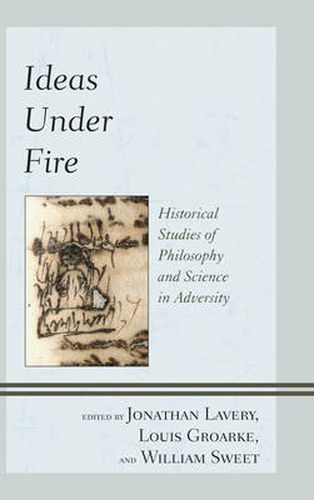Readings Newsletter
Become a Readings Member to make your shopping experience even easier.
Sign in or sign up for free!
You’re not far away from qualifying for FREE standard shipping within Australia
You’ve qualified for FREE standard shipping within Australia
The cart is loading…






This title is printed to order. This book may have been self-published. If so, we cannot guarantee the quality of the content. In the main most books will have gone through the editing process however some may not. We therefore suggest that you be aware of this before ordering this book. If in doubt check either the author or publisher’s details as we are unable to accept any returns unless they are faulty. Please contact us if you have any questions.
Since Aristotle’s famous declaration that the speculative sciences originated with the emergence of a leisure class, it has been accepted as a truism that intellectual activity requires political stability and leisure in order to flourish. Paradoxically, however, some of the most powerful and influential contributions to Western intellectual culture have been produced in conditions that were adverse-indeed hostile-to intellectual activity. Examples include Socrates’ stirring defense of the examined life before a hostile Athenian jury, Boethius writing The Consolation of Philosophy under the specter of impending torture and execution, Galileo devising key notions for modern mechanics while under house arrest, and Jean-Paul Sartre drafting portions of Being and Nothingness in his war diaries, to name only a few of the most famous incidents-all extraordinary achievements spawned, developed or completed in adversity. In cases such as these, a philosopher or scientist must manage somehow to remain intellectually creative and focused despite living in conditions that are adverse or hostile to thought. In brief, they are working on ideas under fire.
This book is a survey of several momentous cases of philosophers and scientists working under fire. Each chapter of Ideas Under Fire explores a particular case or set of related cases. For each case contributors consider two questions: How did the individual at the center of a particular moment of discovery overcome such formidable obstacles to leisure and conceptually abstract thought? And how did adversity shape their thinking under fire?
Each chapter has been written by a specialist on its respective subject, and the book covers every period of Western history. All the chapters are written in an accessible style that is intended to appeal to both specialists and generalists.
$9.00 standard shipping within Australia
FREE standard shipping within Australia for orders over $100.00
Express & International shipping calculated at checkout
This title is printed to order. This book may have been self-published. If so, we cannot guarantee the quality of the content. In the main most books will have gone through the editing process however some may not. We therefore suggest that you be aware of this before ordering this book. If in doubt check either the author or publisher’s details as we are unable to accept any returns unless they are faulty. Please contact us if you have any questions.
Since Aristotle’s famous declaration that the speculative sciences originated with the emergence of a leisure class, it has been accepted as a truism that intellectual activity requires political stability and leisure in order to flourish. Paradoxically, however, some of the most powerful and influential contributions to Western intellectual culture have been produced in conditions that were adverse-indeed hostile-to intellectual activity. Examples include Socrates’ stirring defense of the examined life before a hostile Athenian jury, Boethius writing The Consolation of Philosophy under the specter of impending torture and execution, Galileo devising key notions for modern mechanics while under house arrest, and Jean-Paul Sartre drafting portions of Being and Nothingness in his war diaries, to name only a few of the most famous incidents-all extraordinary achievements spawned, developed or completed in adversity. In cases such as these, a philosopher or scientist must manage somehow to remain intellectually creative and focused despite living in conditions that are adverse or hostile to thought. In brief, they are working on ideas under fire.
This book is a survey of several momentous cases of philosophers and scientists working under fire. Each chapter of Ideas Under Fire explores a particular case or set of related cases. For each case contributors consider two questions: How did the individual at the center of a particular moment of discovery overcome such formidable obstacles to leisure and conceptually abstract thought? And how did adversity shape their thinking under fire?
Each chapter has been written by a specialist on its respective subject, and the book covers every period of Western history. All the chapters are written in an accessible style that is intended to appeal to both specialists and generalists.